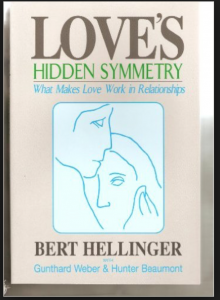

To Lissie and Bob, Respectfully, with Blessings
To Lissie and Bob, Respectfully, with Blessings
I’ve reached that age where friends, and friends of friends, die. Parents have been passing for the last decade. Time’s attrition has set in. It can’t be denied, despite botox shots to the forehead and restylane fillers, retinA, yoga, and multivitamins. The years are relentlessly proceeding, scoring as they go.
Recently there were losses close to me. These were not losses to me personally, but to people I care about. My friend Geoffrey lost a sister. He sent an email last night, “Lissie passed away peacefully.” I said the quiet prayers I always do, and replied to Geoff that my love was with him and his family.
Three weeks ago my husband’s friend Bob died. Bob was a stalwart part of a circle of people in LA whom we have come to like very much. My husband spoke to Bob a few times a week and always enjoyed the conversations. Bob had a way of making a connection. His death came as a shock.
I met Bob only twice, enough to be impressed with his intelligence and big heart, his graciousness and sensitivity. Lissie I met a few times many years ago. She always struck me as one of those formidable Yankee women, lovely in her bones and capable and smart. I respected her.
Most of all, I appreciated Bob’s presence in my husband’s life, and Lissie’s presence in Geoffrey’s. I was glad to know that two people for whom I cared had good people around them.
May Lissie and Bob pass on to the highest heaven of pure light, and may those left behind feel their love more than their loss.

3RD ROCK FROM THE SUN
My friend Gerda is not only a gifted healer and psychic, she is also a friend who understands. We have had this discussion many times, to whit: What are we doing on Earth? We don’t belong here. This place is crazy.
I maintain it is because of Chocolate. I was happily zipping around the cosmos as a gas being, all cool and free, when I approached a pretty little blue and white planet with its sticky astral plane, and someone waved a gooey piece of hazelnut-filled chocolate. BAM! I was caught, like a fly on glue paper.
“Oh, yes, chocolate,” Gerda sighs. “That would do it. Have you tried Milka?”
I am lucky there is someone else here from my unit…. And that 3rd Rock can still be seen on dvd. My children gifted me with seasons 1-4 for Christmas. I laugh and laugh watching it, the laughter of truth and understanding. The laughter of, when is my mission over, when do I get to go home?
Meantime, this planet is rich in pleasure. It wasn’t just chocolate that lured me here. There are also hugs from my children, swimming in a warm sea, lying in the sun, stretching into trikonasana, love-making, beautiful clothes, the scent of lilacs and white flowers in perfumes like DelRae’s Debut or Yosh’s White Flower, an old ripe amarone or brunello di montelcino (I’m partial to the 1997’s), sliding between clean, crisp sheets at night, Krishna Das rocking out to Hare Krishna, or the Dixie Chicks wrenching my heart with Landslide, walking through the Vatican Pinacoteca….
It’s worth it, even with all the accepted, institutionalized insanity, even with all the suffering and loss that come with this bipedal flesh bag with opposable thumbs and uncontrollable emotions. This mission is valuable in and of itself.

Love’s Hidden Symmetry: Hellinger’s Work (part 1)
Of late I am reading Bert Hellinger’s book LOVE’S HIDDEN SYMMETRY: What makes love work in relationships (Zeig, Tucker & Co, Phoenix, Arizona: 1998). This book is amazing. I read it with a sense of wonder and delight, a feeling that at last there’s psychological work that deals honestly and practically with the deepest issues of the heart.
I’ve undergone a lot of psychotherapy, most of which I now view with suspicion. It isn’t that I didn’t get a lot out of the work. It isn’t that I don’t see how useful a compassionate witness can be. I grew from my nearly 18 years in therapy, and I have many times taken solace from, and given it as, a caring and non-judgmental presence.
However, there are some serious flaws with the way most contemporary therapy is practiced. To begin with, every shrink I know as a person, not professionally, is completely daft. Why do people become therapists? They want to fix themselves. Let me say, every shrink I know in a secular way needs all the help they can get. I look at these people while we’re socializing and think, Wow. People pay you to muck around in their psyche?
I don’t exempt myself. I was a healer for many years because I wanted to heal my self. That wasn’t the only reason, of course. Just as it isn’t the only reason people become therapists, psychiatrists, etc. They also have compassion. They mean well.
And they want to earn a living. They have a stake in their clients/patients staying crazy, not healing, in order to continue to earn a living. I am a big fan of people making a living, but I wonder about the conflict of interest here. Which leads me to one of the other distortions in modern psychotherapy, which is: it takes too damn long. That benefits the therapist but not the client.
The last few years I was in therapy, my therapist did a lot of the energy therapies with me: EFT, TAT, EMDR. I hear good things about neuro-linguistic programming, too. These techniques work well. They’re quick and elegant, and they cut through the bs like the sword cutting the gordian knot. More and more, it seems to me that all that talk therapy, regurgitating the same stuff about your mom and dad, serves mostly to re-wound people. Say it once, twice if it was a life-changing trauma, then move on–otherwise there’s a very good chance of falling into what Caroline Myss calls ‘woundology.’
Then too there seem to be plenty of people using talk therapy as an expensive and elaborate narcissistic crutch. They go to session as a means for rationalizing the most absolutely atrocious behavior. I’ve seen that a lot: “I have to talk to my therapist,” says someone, before behaving in a way that is criminally unkind.
Kindness matters a lot. Niceness not at all.
So, with these criticisms about psychotherapy, I turn to Hellinger’s family constellation work. I don’t agree with everything he writes. I’m probably never going to agree 100% with anything, including myself, because I use the tools of critical analysis at my disposal. That is, I discriminate: I separate the wheat from the chaff. The highest octave of this ability is discernment, something that modern psychotherapy, in its overly convoluted quest for a blithe blankness masking itself as neutrality, seems to be trying to eradicate from the contemporary mind. I also form opinions. Some are wrong, some are right, and most are strongly held. This is where I’ll quote Dante: “The hottest place in hell is reserved for those who, in times of great moral crisis, maintain their neutrality.” And we live in a time of great moral crisis.
In my opinion, Hellinger’s work is some of the most real and authentic work I’ve ever come across. This is a long post, so I’ll continue with why I like Hellinger in another post.

Miyoko Olszewski: World Champion
On Thursday evening, Miyoko “The Hawaiian Mongoose” Olszewski defeated Elena Reid to win the WIBA flyweight title.
Miyoko is a longtime friend and I was there, screaming and cheering in the audience. Those of us who had come to root for Miyoko wore leis, nodding to Miyoko’s Hawaiian origins. What a fight it was, all 10 rounds! Miyoko came out strong in the first few rounds, fighting in her trademark crisp, thoughtful style. For a few rounds in the middle, Miyoko seemed to conserve herself, and a few voices screamed, “Jab, Miyoko! Double jab!”
I laughed to myself when I heard the calls. I’ve sparred with Miyoko, and her jab is like a solid brick wall. There’s simply no getting through it. Miyoko’s jab is so tough and skilled that there’s not even the possibility of a few atoms making use of quantum tunneling to get through it.
Then in the 8th round, Miyoko brought it. She came forward with powerful, relentless punches and dominated the fight. By the 9th round, Reid’s face was swollen to twice its original size. It was a clear, decisive victory for Miyoko, and her fans yelled themselves voiceless.
Miyoko deserved this win: she has worked long, hard, and consistently to achieve World Champion status. She exemplifies values that I revere and that I try to teach my children: hard work, sacrifice, self-discipline. These are not glamorous values today. Our culture has been overly psycho-therapized into mediocrity; we think any old half-hearted effort is just swell. We teach our kids that losing soccer games is just as good as winning them. And while good sportsmanship is imperative, and everyone needs to learn to deal gracefully with defeat and failure–we’ve done our children a disserve. Losing is not the same as winning. Mediocrity is not okay.
Winning matters. Being the best matters. If being the best isn’t an option for genetic or other reasons, then hard work, self-discipline, and sacrifice still matter; those qualities differentiate between mediocrity and excellence. The 4000 failures that are required along the path to success matter. It’s a question of persistent integrity, another value that is not considered important in today’s moral relativism.
But people who persist in these terribly old fashioned values are world champions. Some of them win a belt and acclaim, as Miyoko did. Some just win a quiet internal sense of self-esteem.



